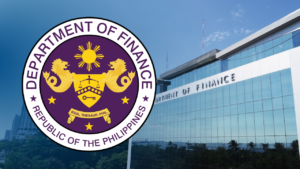MANILA, Philippines—President Ferdinand “Bongbong” Marcos Jr’s chief economic manager on Friday (July 15) said food importation to augment supply and targeted subsidies to the most vulnerable sectors would ease high global inflation spilling over to the Philippines.
“We have a comprehensive set of interventions to effectively balance the need to sustain growth momentum while containing inflationary pressures and their cascading effects on the economy,” Finance Secretary Benjamin Diokno told a meeting of G20 finance ministers and central bank governors.
While the Philippines is not part of the G20 grouping of the world’s economic giants, Diokno was invited to attend as a guest by Indonesia, the host country of this year’s meetings.
To keep food prices accessible, Diokno said the government wanted to increase agricultural output while sustaining importation of certain commodities like corn, pork, and rice, at lower tariffs under ex-president Rodrigo Duterte’s Executive Order (EO) No. 171 effective until this year’s end.
Also, “targeted subsidies have been allocated to cushion the impact of rising fuel prices on the public transport sector,” Diokno said. For this year, the previous Duterte administration had set aside a total of P47.5 billion in financial aid to those worst hit by skyrocketing oil prices—P41.4 billion in unconditional cash transfers to the poorest half of the population, P5 billion in fuel subsidies for drivers and operators of public utility vehicles (PUVs) and P1.1 billion in fuel discounts to farmers and fisherfolk.
To date, the Department of Budget and Management (DBM) has already released P16.7 billion of these subsidies, funded by windfall from the incremental import duties and taxes being collected from costly fuel. But with the economy expected to fully recover by the middle of this year, these subsidies would no longer be given next year, Diokno said last week.
At the G20 meeting, Diokno also highlighted that “the Bangko Sentral ng Pilipinas (BSP) has been decisive in undertaking the necessary monetary policy actions to arrest the rise of inflation,” referring to the string of interest rate hikes, including the off-cycle 75-basis point (bp) increase in the bank loan policy rate to 3.25 percent last Thursday (July 14).
While yet to peak, headline inflation averaged 4.4 percent, above the BSP’s 2 to 4 percent target band of manageable price hikes conducive to economic growth, during the first half of 2022.
“With these policy instruments and a medium-term fiscal framework in hand, we are confident that the pains brought by ongoing shocks will be short and our recovery will remain robust,” Diokno said.
“The government’s medium-term fiscal framework is aimed at reducing the budget deficit, promoting fiscal sustainability, and enabling robust economic growth,” said Diokno.
“It contains near-term and medium-term strategic plans for socioeconomic development, which will be presented in detail to the public by President Marcos Jr. in his first State of the Nation Address (Sona)” on July 25, Diokno added.


